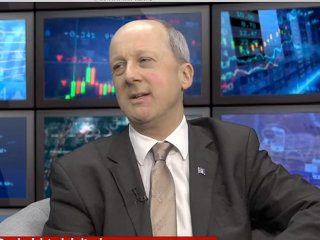www.zfenglish.com - Last update 15:24
Brexit: Second vote the only solution to the crisis
03.21.2019
Since the start of the year, Britain has seen political chaos without precedent in its recent history. How has this situation arisen, in a country which used to be seen as a byword for stability and pragmatism? The origins lie in the divisions in the British Conservative Party. Usually seen as the party of business, the Conservatives have, for decades, also had a nationalist, anti-EU wing, which has plagued its leaders. David Cameron thought he could deal with this by calling a referendum on EU membership, which he thought he would win.
He miscalculated badly, and his worst mistake was to allow the leaders of the Leave campaign to get away without a clear plan.Even after the referendum, there was still a chance for a pragmatic approach which would have avoided the current chaos, and many were optimistic that Theresa May could be the common-sense leader which the country needed. Given the closeness of the result, the bitter divisions in the country and the lack of clarity as to what the Leave vote actually meant, a Norway type solution might have brought the country together, if it had been adopted at that point. It would not have been ideal- Britain would have been subject to much EU law without having a formal say in the making of it. But it would have given Leave voters the feeling that Britain was distinct and Remain voters would have largely accepted it because most of the obvious benefits of EU membership would have been retained, like freedom of movement, Erasmus, the opportunity to retire to France or Spain easily, EHIC cards and shorter queues at airports. The economy would not have been too badly affected, and the solution would have been welcomed by most businesses.
But very quickly after May took office, she demonstrated that she was in hock to the proponents of the most extreme form of Brexit, setting out her vision in her Lancaster House speech, when she insisted that Britain must end free movement and leave the Single Market and Customs Union. By aligning with the hard-Brexiters, she was also peddling their fantasies. The worst mistake of all was to ignore the issue of the Irish border. The land border in Ireland is open, with no checks, and this was an essential condition of the Good Friday Agreement in 1998, which put an end to decades of conflict by giving Northern Ireland autonomy within the UK.
But if the UK leaves the EU customs union, logically there would have to be checks. The Brexiters claimed that the problem could be solved by technology, hence obviating the need for physical border checks or infrastructure, but did not come up with practical details. Initially, the EU proposed that to avoid this, Northern Ireland should have a separate status, but after this was rejected by the British government, the backstop solution was reached. Under the backstop, the whole of Britain would stay within the EU customs union until the supposed technological solutions had been found. Logically, the Brexiters should have had nothing to fear about this - if their technological solutions were genuine, these would solve the problem. Yet it has been the main reason why they have voted down May’s deal twice in Parliament.
In practice, we are left with Theresa May’s deal, which would leave the UK indefinitely in a customs arrangement with the EU, without a say in policy making and without the benefits of EU membership. The reality is far from what was presented by the Leave campaign. As an EU member, Britain has had a very good deal from the EU, with opt outs from the euro and Schengen and a generous rebate, negotiated by Margaret Thatcher.
The only solution to the current impasse is to put Mrs May’s deal to the people, three years on from the 2016 referendum, and establish whether the people prefer this or if they would rather remain in the EU. It is to be hoped that Britain’s European friends will continue to show the extreme patience and understanding they have up to now, and grant Britain the necessary extension to carry out such a vote.
Mark Percival

